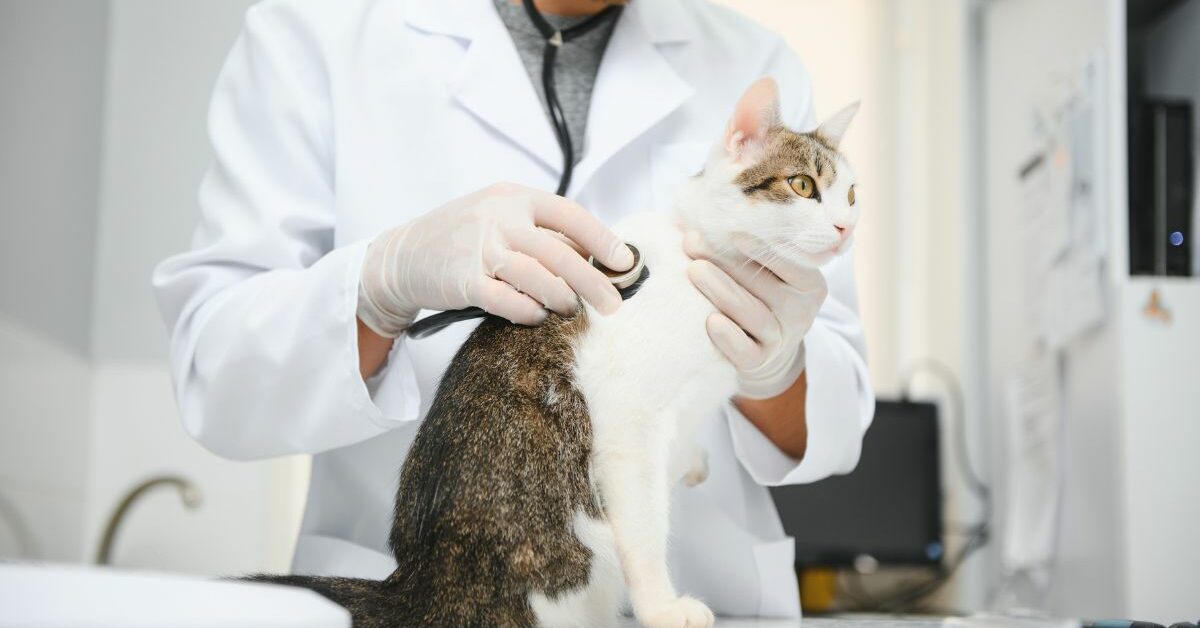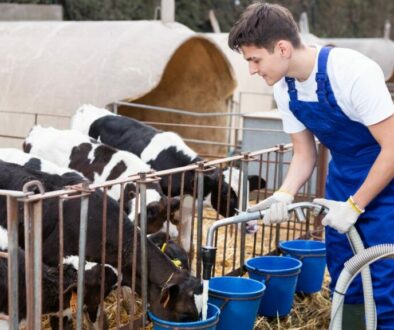How To Become A Veterinarian?
If you love animals, have a passion for scientific discovery and want to help them live healthy and happy lives, then becoming a veterinarian might be the perfect career path for you. In this article, we’ll take a detailed look at what it takes to become a veterinarian and what the job entails.
Steps To Becoming A Veterinarian
The road to becoming a veterinarian can be long and challenging, but for those who are determined and passionate about the field, it can be a very rewarding experience. Here are the steps needed to become a veterinarian:
- Earn a bachelor’s degree
Before applying to veterinary school, you’ll need to earn a bachelor’s degree. While there is no specific major required for admission into veterinary school, students typically earn a degree in fields such as animal science, biology, or pre-veterinary studies.
During your bachelor’s degree, you’ll have the opportunity to take courses that will help prepare you for veterinary school. These courses may include animal anatomy, physiology, microbiology, and genetics. You may also have the opportunity to participate in research projects or internships to gain hands-on experience working with animals. - Take the Graduate Record Examination (GRE)
The Graduate Record Examination (GRE) is a standardized test that’s usually required for admission into veterinary school. It measures your critical thinking and academic skills. Be sure to check the specific requirements for the schools you’re interested in attending.
Preparing for the GRE can be a daunting task, but there are many resources available to help you. You may want to consider taking a prep course or working with a tutor to help you improve your scores. Additionally, many veterinary schools offer GRE prep courses or workshops to help applicants prepare for the test. - Attend veterinary school
After completing your undergraduate degree, you’ll need to attend veterinary school. Veterinary school typically takes four years to complete and includes both classroom and clinical coursework. During your time in veterinary school, you’ll learn about animal anatomy and physiology, pharmacology, animal behavior, and more.
In addition to classroom work, you’ll also have the opportunity to gain hands-on experience working with animals. This may include working in a veterinary clinic, participating in research projects, or completing externships at zoos or wildlife rehabilitation centers. - Get licensed
After veterinary school, you’ll need to become licensed to practice in your state. This will typically involve passing the North American Veterinary Licensing Examination (NAVLE) and meeting any additional state requirements.
Once you’re licensed, you’ll have the opportunity to work in a variety of settings, including private practice, research labs, zoos, and more. You may also choose to specialize in a particular area, such as surgery, oncology, or cardiology.
Becoming a veterinarian requires a lot of hard work and dedication, but it can be an incredibly rewarding career. Whether you’re working with pets, livestock, or wildlife, you’ll have the opportunity to make a difference in the lives of animals and their owners.
Skills Needed For Becoming A Veterinarian
While a degree in the sciences is essential, there are several other skills that a veterinarian must possess in order to be successful in their career. Here are some of the key skills that you should develop if you want to become a veterinarian:
Strong communication skills
Veterinarians must be able to communicate effectively with clients and other members of their team. This includes everything from explaining medical conditions to pet owners to working collaboratively with veterinary technicians and other staff members. Effective communication is crucial in ensuring that pet owners understand the medical conditions of their pets and the treatment options available to them. Good communication skills also help veterinarians to build strong relationships with their clients, which can lead to repeat business and positive word-of-mouth referrals.
Compassion and empathy
One of the most important qualities for a veterinarian is compassion for animals and their owners. A veterinarian must be able to empathize with both the pet and their owner when providing care and making treatment decisions. This requires a deep understanding of the emotions involved in pet ownership, as well as the ability to provide comfort and support to both the animal and the owner during difficult times. Compassion and empathy are also important in helping veterinarians to build trust with their clients, which is essential for a successful veterinary practice.
Analytical skills
Veterinarians must have strong analytical skills in order to diagnose medical conditions and develop effective treatment plans. This requires the ability to interpret laboratory results, conduct thorough physical exams, and use advanced diagnostic techniques. Analytical skills are also important in identifying potential health risks and developing preventative care plans for pets. By using their analytical skills, veterinarians can provide the best possible care for their patients, which can lead to better health outcomes and happier clients.
Physical stamina
Veterinarians must be able to work long hours on their feet and handle animals of various sizes and temperaments. This requires physical stamina and the ability to stay calm under pressure. Working with animals can be physically demanding, and veterinarians must be prepared to handle unexpected situations that may arise during exams or surgeries. Physical stamina is also important in maintaining a busy veterinary practice, as veterinarians may need to work long hours or be on call for emergencies.
Becoming a successful veterinarian requires more than just a degree in the sciences. Veterinarians must possess a range of skills, including strong communication skills, compassion and empathy, analytical skills, and physical stamina. By developing these skills, veterinarians can provide the best possible care for their patients and build successful veterinary practices that are valued by their clients.
What Is A Veterinarian?
A veterinarian (or “vet” for short) is a medical professional who provides care to animals. They diagnose and treat animals for a range of medical conditions and perform surgeries when necessary. In addition to caring for pets, many veterinarians specialize in areas such as livestock, wildlife, or laboratory animal medicine.
Veterinarians also play an important role in public health. They work to prevent the spread of animal-borne diseases and help ensure that the food we eat is safe and disease-free.
As a veterinarian, one of the primary responsibilities is to diagnose and treat illnesses and injuries in animals. This can involve conducting physical exams, ordering diagnostic tests, and prescribing medications or other treatments. In some cases, surgery may be necessary to correct a medical issue or injury.
Another important aspect of being a veterinarian is preventative care. This involves educating pet owners on how to keep their animals healthy through proper nutrition, exercise, and regular check-ups. Vaccinations are also an important part of preventative care, as they can help protect animals from a range of diseases.
Veterinarians who specialize in areas such as wildlife or zoo medicine may work with exotic animals in addition to more common domestic pets. These veterinarians may need to travel to different locations to provide care, and may also work closely with other professionals such as zoologists or wildlife biologists.
Public health is another important area of focus for veterinarians. They may work to prevent the spread of diseases such as rabies or Lyme disease, and may also be involved in monitoring food safety to ensure that meat and dairy products are free from harmful bacteria or other contaminants.
In addition to providing medical care, veterinarians also play a role in research. They may conduct studies to better understand animal diseases and how to treat them, or may work on developing new medications or treatments.
Overall, being a veterinarian is a rewarding and challenging career that requires a love of animals, a strong educational background, and a commitment to ongoing learning and professional development.
The Benefits of Working as A Veterinarian
Despite the long and challenging training required to become a veterinarian, there are many benefits to working in this field. Here are just a few:
Job satisfaction
For many veterinarians, the opportunity to help animals and their owners is deeply rewarding. Knowing that you’ve made a difference in an animal’s life can be incredibly fulfilling. When you see a sick animal come into your clinic and you’re able to diagnose and treat their illness, it can be a great feeling. And when you see that animal leave your clinic healthy and happy, it can make all the hard work worth it.
Additionally, working as a veterinarian allows you to build strong relationships with your clients and their pets. You get to know them over time and become a trusted advisor for their pet’s health and wellness. This can lead to a very fulfilling and rewarding career.
Variety of work environments
Veterinarians can work in a variety of settings, including private practices, animal hospitals, research facilities, zoos, and more. This can provide a lot of variety and opportunities for growth throughout your career. If you’re interested in working with exotic animals, you can pursue a career in a zoo or wildlife sanctuary. If you’re interested in research, you can work in a lab studying animal diseases or developing new treatments.
Additionally, many veterinarians choose to specialize in a particular area of veterinary medicine, such as surgery or internal medicine. This allows them to focus on a specific area of interest and become experts in their field.
Job security
The demand for veterinarians is expected to grow over the next decade, making it a relatively secure career path. Additionally, many veterinarians open their own practices and are able to be their own boss. This can provide a lot of job security and flexibility, as well as the opportunity to build a successful business.
Overall, becoming a veterinarian requires a lot of hard work and dedication, but for those who are passionate about animals and scientific discovery, it can be an incredibly rewarding career path. Whether you’re working in a private practice or a research facility, you’ll have the opportunity to make a difference in the lives of animals and their owners every day.




